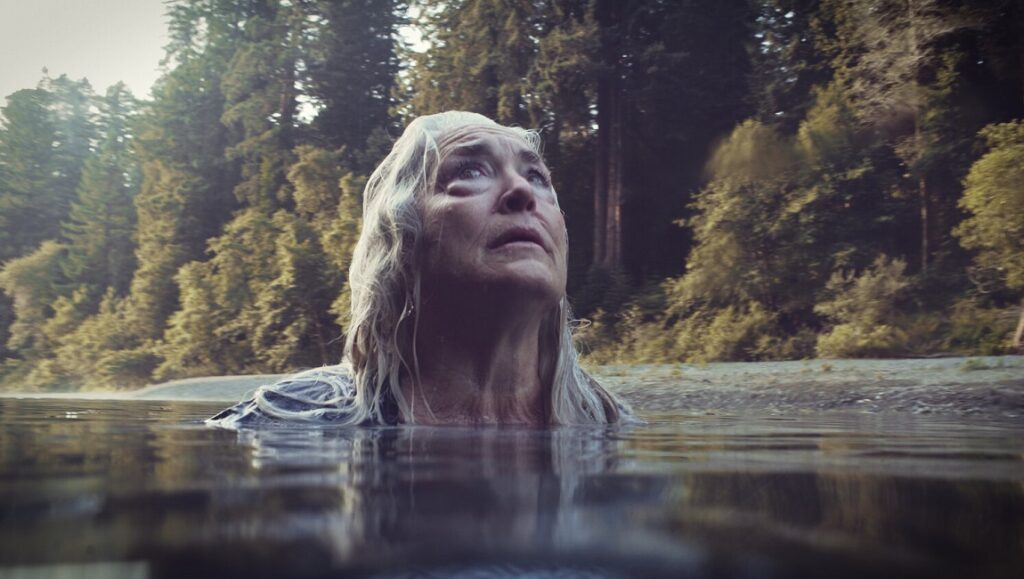Freeland stumbles when it feels compelled to inject arbitrary conflict, but is an otherwise sturdy, necessarily cynical portrait of modern economic peril.
The legalization of recreational marijuana in many states has opened up a whole new chasm in the mechanics of an already tumultuous 21st-century American economy. Addressing this phenomenon in a resolutely small-scale, micro sense, Mario Furloni and Kate McLean’s Freeland chronicles the difficulties of one woman’s desperate, ultimately futile attempts to navigate a new, heretofore unimaginable arena of corporatization, as the old ways have gradually dissolved into a morass of bureaucratic red tape and big business monopolies. It would seem that there is absolutely nothing that capitalism can’t turn into a haves-and-have-nots dichotomy.
Nestled away in the secluded woodlands of Northern California, ex-hippie Devi (Krisha Fairchild) has carved herself out a sustainable life of pot cultivation. With a small crew of younger helpers, who live in trailers on her property, she grows and harvests her own weed crop, selling her wares to dealers big and small and otherwise enjoying her twilight years. But legalization has led to closer scrutiny via local government, which has begun pursuing sanctions against Devi for not having the proper permits to officially grow or distribute her pot. And so the film charts her gradual capitulation to an oppressive system; at first, calm, even cavalier about her predicament, Devi assumes things will blow over. When a lien is placed on her homestead, she digs up her life savings in an effort to secure a permit. But that doesn’t work, either, as big companies have cornered the market for their own purposes. A visit to an old family friend quickly turns antagonistic, as they explain to Devi that they cannot buy her pot as they can’t prove it comes from a legal source, then chastise her for trying to buck the system. It’s a series of Catch 22s, in which Devi can’t make money without following strict procedures, yet can not afford to buy her way into the system.
Furloni and McLean come from a documentary background, and one of Freeland’s strengths is its precise sense of place. Shot on location on real, working pot farms, there’s a tactile quality to the proceedings. Authenticity is hard to fake, and Fairchild’s nuanced, guileless performance matches the specificity of the milieu. Co-director Furloni is also the film’s cinematographer, and gradually transforms the natural terrain from a gentle sense of envelopment into a kind of ominous, foreboding prison, with towering trees overwhelming the human figure. At barely 80 minutes sans credits, Freeland doesn’t flesh out its supporting characters enough to support a late-act betrayal, which disregards the realistic materialism of the rest of the film for a brief dive into pop psychology. Like this year’s Holler, another strong indie film plagued by a late-act miscalculation, one senses that the filmmakers felt compelled to add unnecessary complications in an effort to goose the narrative rather than simply luxuriating in character moments. Still, it’s a minor quibble in an otherwise stellar film, and in her first major role since her breakthrough in 2015’s Krisha, Fairchild commands the screen with her regal yet casual air and hearty laugh, somewhere between a queen and a stoned grandma. Her downfall is heartbreaking to observe, all the more so as Furloni and McLean contextualize it as the last gasp of a long diminished counter-culture dream. When “the man” has taken over even the once-illicit drug trade, what’s left for the rebels to rage against? It’s all been co-opted.
Published as part of Before We Vanish | October 2021.


Comments are closed.